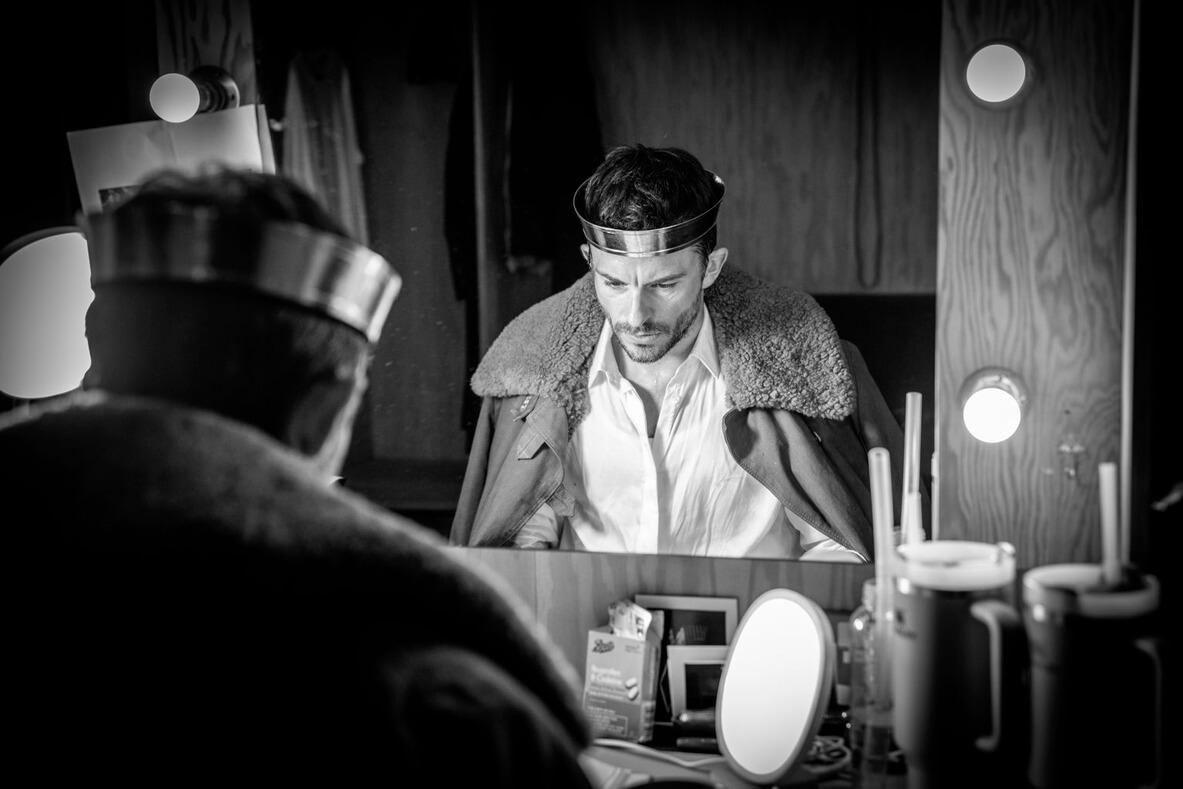Of course, he didn’t simply destroy the text; arguably, he knew he’d written something special. In the event, his widow countermanded his instructions, and the play was first performed in 1956, three years after his death.
Now in the West End, having transferred from Bristol Old Vic, it needs to be noted that this is not an easy watch. At three and a half hours, it’s a long evening with little in the way of humour and only five characters.
James Tyrone (Jeremy Irons) is a drunken skinflint, an actor-manager, wealthy but full of frustration that his wealth has been generated by touring in one third-rate play for most of his career. Haunted by the poverty of his childhood, he will never light two bulbs when one will do, and is reluctant to pay for his family’s healthcare, a fact that may be responsible for the morphine addiction of his wife Mary (Lesley Manville) and may have further consequences for his younger son Edmund (Matthew Beard), who is gravely ill. His older son, James Jr (Rory Keenan), is a ne’er-do-well failed actor, now living off his father in return for manual help around the properties. The two boys compete with their father in the race to the bottom of the whisky bottle.
And as for plot: well the plot is the characters and our slow discovery of them over the course of a single day, through their increasingly drunken or morphine-addled interactions; through the fog that rolls off the sea into Connecticut and envelops them physically, metaphorically, and existentially, and is almost a sixth character in the play.
Richard Eyre directs with love and respect for the piece, opening with a jolting briskness but broadening in pace as the fog thickens. There is no broad-brush painting here, and the relationship of every character to every other, and to their own inner world, is alive with detail.
Sad to say, though, Irons disappoints. It’s a performance that is just too underpowered for this sozzled, feisty character who has fought his way up from nothing, and oddly, almost shockingly, Irons appears incapable of sustaining an American accent. His vowels are so bewildering that I do begin to wonder if they are a product of extensive historical research into the speech of 1912 residents of Connecticut. But, on reflection, I’m afraid it’s just English. And while his characterization is not without insight, he is utterly eclipsed by the magnificent Manville as trapped, resentful, revengeful but still loving Mary. Her every glance upstairs, to where she hides her morphine, conveys a lifetime of heartbreak, longing for security, and doomed hope, and her final complete withdrawal from reality is devastating.
As the sons, Beard is as wan and consumptive as you could ask; Keenan’s self-loathing is palpable. Real theatrical magic happens in their relationship, believably the product of years of brotherly caring and loathing. And the harshly rationed light relief mostly comes from Jessica Regan as Cathleen the maid - very welcome it is too.
Long Day’s Journey Into Night is a great play, a milestone in 20th century American theatre, and Eugene O’Neill is a genius on whose shoulders stood Tennessee Williams, Arthur Miller, David Mamet and Edward Albee. And yet, it’s a very hard watch, one that arguably doesn’t repay all that it asks of its actors and its audience. It contains great beauty, but also great, unrelenting misery. Dare I say but, great as O’Neill was, he may have lacked the craft of those who were to come after. I recommend you go and see it, and hope you come out saying how wrong I was.

 Eugene O’Neill completed Long Day’s Journey Into Night in 1941, but such was his apparent shame at having produced this dramatic dissection and evisceration of a fictional Irish-American family, that he submitted it with the instruction that it was not to be published until 25 years after his death, and was on no account ever to be performed on a stage.
Eugene O’Neill completed Long Day’s Journey Into Night in 1941, but such was his apparent shame at having produced this dramatic dissection and evisceration of a fictional Irish-American family, that he submitted it with the instruction that it was not to be published until 25 years after his death, and was on no account ever to be performed on a stage.



 Very few people know someone called Joleene – it’s not the most popular of names. Nobody works from 9am to 5pm anymore – the working day in London is definitely at least an hour longer either side. But, despite these changes, we do all still love a bit of Dolly Parton (Mia Hall).
Very few people know someone called Joleene – it’s not the most popular of names. Nobody works from 9am to 5pm anymore – the working day in London is definitely at least an hour longer either side. But, despite these changes, we do all still love a bit of Dolly Parton (Mia Hall).